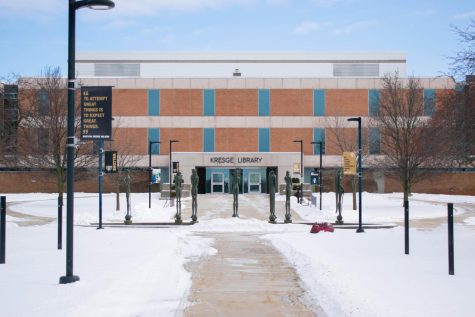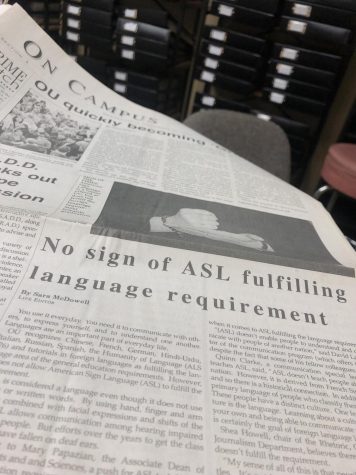Looking Back: 2004 budget cuts leave students and faculty unemployed
The 2004 academic year was plagued by budget cuts that affected many Oakland University students and faculty. Many students’ and staff members’ jobs were in jeopardy, and available spots for incoming freshmen were being questioned.
Many students at the time relied on on-campus jobs to help pay for their bills and groceries. Jazmine Cobb, a senior at the time, depended on her job in the Oakland Center since she didn’t have a car on campus. Cobb used to work at the Reservation Office of the OC, but lost her job as a result of the budget cuts.
According to Richard Fekel, the director of the Oakland Center at the time, some of the jobs in the OC were cut to make up for the extra cost of adding new expansions to the building. He said utilities, maintenance, cleaning supplies and other necessary items for the OC were all being added up in the cost.
“The expansion has played probably the largest role in us trying to diligently manage our budget this year,” Fekel said.
More than 1,000 students at the time relied on OU for employment. These budget cuts were due to the state government’s attempts to balance out the budget by taking state funding away from higher education.
“The number of student employees and amount of earnings can fluctuate from year to year,” said Cindy Hermsen, director of financial aid. “It depends on the needs of the hiring department, the number of hours a student works and funding levels from the federal state and campus departments.”
Some jobs at the time were ultimately safe from the budget cuts. Student employment within the organizations of WXOU, Student Congress and The Oakland Post is funded differently than other student jobs in the OC. These organizations are funded by the Student Activity fee or advertising revenue.
In addition to returning students that were affected by these budget cuts, incoming freshmen in the fall of 2004 were also affected.
Then-President Gary Russi said some incoming freshmen would have to be put on an enrollment waitlist during a budget briefing meeting.
The university also had to take other cost-saving measures by outsourcing, partnership, electricity deregulation purchases and working toward a “paperless” university.
Additionally, then-Vice President for Academic Affairs Viriinder Moudgil said 28 faculty positions would be released. OU’s media relations director at the time, Ted Montgomery, said the hiring for those 28 positions would be frozen and they would not be filled.
These faculty cuts were done in hopes of keeping the quality of the education on campus, but OU was hoping to find more options to help support the upcoming school year.
While no changes were expected for OU’s funding at the time, Russi believed going over enrollment management, external funding, streamlining operations, partnerships and OU’s location would help the administration work toward the university’s continued success.











